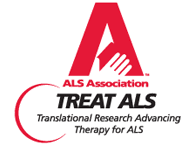
In between listening to salvos fired by those running for president, I happened across a reference to an interesting case related to ALS. A rather lengthy pleading has been written by a fellow PALS (person with ALS) which seeks pro bono help from the dean of the DePaul University Law School in Chicago.
Central to his pleading is a therapy that is showing good results in motor neuron diseases, including ALS, in Italy. Unfortunately for those of us not living in Italy, a patent infringement suit is keeping the drug from being available in the United States. It is available in Italy because a law suit ruled in favor of the PALS which the Italian government now makes the drug Iplex manufactured by Ismed available to all who are prescribed.
In the US, on the other hand, Genentech/Tercia sells Increlex, a drug similar to Iplex but shown not to have the benefits. As a result of the Genetech/Tercia suit, Insmed is prohibited from selling Iplex in the US.
Caught in this dilemma are the over 30,000 ALS patients now fighting this incurable disease here in the United States.
I have trouble keeping all the I-sounding drugs and companies straight. I really recommend that a read of the full document prepared by Edward Esparza. Then think of ways that we can free up one of the very few therapies that have shown some benefit in slowing the progress of this deadly disease. Maybe some other lawyers out there would find this an excellent pro bono case.
http://www.inspire.com/groups/als-advocacy/discussion/iplex-1/
Central to his pleading is a therapy that is showing good results in motor neuron diseases, including ALS, in Italy. Unfortunately for those of us not living in Italy, a patent infringement suit is keeping the drug from being available in the United States. It is available in Italy because a law suit ruled in favor of the PALS which the Italian government now makes the drug Iplex manufactured by Ismed available to all who are prescribed.
In the US, on the other hand, Genentech/Tercia sells Increlex, a drug similar to Iplex but shown not to have the benefits. As a result of the Genetech/Tercia suit, Insmed is prohibited from selling Iplex in the US.
Caught in this dilemma are the over 30,000 ALS patients now fighting this incurable disease here in the United States.
I have trouble keeping all the I-sounding drugs and companies straight. I really recommend that a read of the full document prepared by Edward Esparza. Then think of ways that we can free up one of the very few therapies that have shown some benefit in slowing the progress of this deadly disease. Maybe some other lawyers out there would find this an excellent pro bono case.
http://www.inspire.com/groups/als-advocacy/discussion/iplex-1/










1 comment:
"The thing that bugs me is that the people think the FDA is protecting them. It isn't. What the FDA is doing and what the public thinks it's doing are as different as night and day."
Herbert Lay, M.D., former FDA Commissioner
Post a Comment